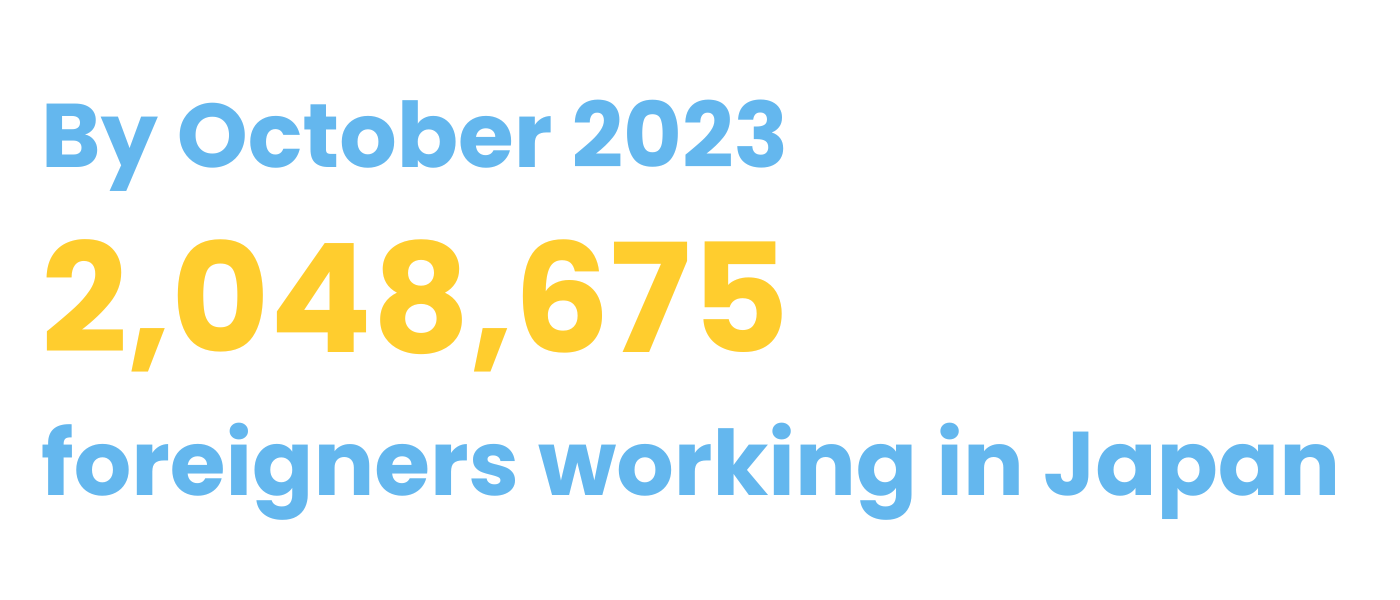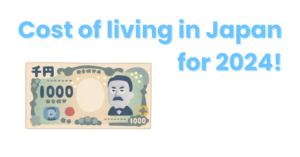My friends from all around the world often ask me what kinds of jobs are foreigners doing in Japan. This is an interesting question, and I usually provide rough answers based on my observations.
However, why don’t we take a look at the latest statistics report issued by the Japanese government in October 2023 to get a more accurate answer? The report calculates that there are 2,048,675 foreign workers in Japan, including 273,777 students (approximately 13.3%) who work part-time jobs.

If you want to work in Japan, this article can serve as a valuable reference. Because I will answer the question of which industries you are most likely to enter as a foreigner and what exact jobs foreigners are doing in Japan.
Industries are actually quite important here in Japan. Why? It’s one of the most common questions in campus recruitments: Why are you interested in this industry? Plus, accumulated experience in an industry can help you secure higher positions.
Okay, now please grab your notebook, and let’s get started!
1. TOP 8 industries for foreigners working in Japan
The top eight industries that foreigners are involved in are as follows:
Manufacturing – 27% (552,399 people)
Service – 15.7% (320,755 people)
Wholesale & Retail – 12.9% (263,555 people)
Hospitality – 11.4% (233,911 people)
Construction – 7.1% (144,981 people)
Health & Welfare – 4.4% (90,839 people)
Information & Communication Technology – 4.2% (85,401 people)
Education – 3.9% (80,033 people)
We can see that more than 50% of foreign workers are employed in the top three industries. Additionally, the percentage rises to 74.1% when we combine the fourth and fifth industries.
Apart from the eight industries in the list, 13.5% of foreign workers are involved in sectors categorized as “others” (276,801 people). For example, this includes agriculture, fishing, finance, real estate, and so on.
* The Japanese government rounded the percentages when compiling this statistical report, so you may notice that the total of all the percentages does not add up to exactly 100%.
2. Subcategory within each industry that foreigners are involved in
After reading Part One, you might find it challenging to picture what kinds of jobs foreigners are doing in Japan. This difficulty arises from the broad nature of the statistics presented earlier. Now, let’s take a closer look at the top five industries, where 74.1% of foreigners are employed, as mentioned above.
2-1. Manufacturing
For the top industry, “Manufacturing,” which accounts for 27%, the breakdown is as follows:
| Subcategory | Percentage |
|---|---|
| Food Manufacturing | 8.3% |
| Transport Machinery and Equipment | 4.7% |
| Metal Products Manufacturing Industry | 2.7% |
| Electrical Equipment | 2.0% |
| Textile | 1.4% |
| Production Machinery and Equipment | 1.3% |
| Beverages, Tobacco, and Animal Feed | 0.1% |
| Others | 6.5% |
| TOTAL | 27% |
2-2. Service
For the second industry, “Service,” which accounts for 15.7%, the breakdown is as follows:
| Subcategory | Percentage |
|---|---|
| Recruitment and Dispatch Agency | 8.0% |
| Automotive Maintenance and Repair | 0.2% |
| Others | 6% |
| TOTAL | 15.7% |
2-3. Wholesale & Retail
There is no specific data for the third industry. I assume this is because each subcategory has too small a share to be considered.
2-4. Hospitality
For the fourth industry, “Service,” which accounts for 15.7%, the breakdown is as follows:
| Subcategory | Percentage |
|---|---|
| Restaurants | 9.7% |
| Hotels | 1.6% |
| Others | 4.4% |
2-5. Construction
Similar to the third industry, there is no subcategory information available for this industry.
3. What specific jobs are foreigners doing in Japan?
According to the stats above, we can see that foreigners working in Japan are engaged in various industries. But what kinds of jobs, or specific positions, are foreigners holding in Japan? This question is too broad to list all of them. In fact, some foreigners have even become celebrities here, while many others are doing more basic jobs.
Although there is no statistical data available, I would like to provide you with an overview based on my observations. Generally, most jobs that foreigners are involved in are associated with the ten keywords listed below:
International marketers
Factory workers
Vehicle companies staff (Toyota, Honda, Nissan)
Recruiters
Care workers
Cooks
Waiters and waitresses
IT engineers
Language teachers
Construction workers

4. How easy is it to get a job in Japan?
Well, this is a very broad question, again, and the answer can vary significantly. It depends on what kind of jobs you are looking for and how much you want to earn. This can also heavily depend on your personal situation—such as your degree, language skills, age, gender, nationality, and so on. For example, based on my observations in Tokyo, the easier jobs for Americans are likely to be in English teaching, while Indian nationals may easily find opportunities in IT engineering.
One thing we can say for sure is that it’s not as hard to find a job in Japan compared to many other developed countries, even though it’s not a typical immigrant country. Why? Because of the increasing aging population.
According to research conducted by the Japan International Cooperation Agency (JICA), there will be almost one million labor shortages in Japan by 2040 to meet the country’s needs. Additionally, in May 2023, the Japan Institute for Labour Policy and Training (JILPT) reported that the active job openings-to-applicants ratio is 1.32, indicating that there are more vacancies than candidates. This is why we can see Japan becoming increasingly open to foreigners.
5. Can you work in Japan without speaking Japanese
The answer is definitely YES. As Japan, especially Tokyo, becomes more international than it used to be, there are increasing opportunities for English-speaking positions. Many of my friends work in English or even other languages such as Chinese and Hindi. However, most positions do require a certain level of Japanese proficiency. You will have many more opportunities available if you have business-level Japanese skills.
Anyway, everyone’s case is different. A Singaporean guy I know didn’t have any Japanese proficiency when he first started working in Japan. After living here for several years, he speaks it very well and even transitioned to a Japanese-speaking job.
6. conclusion
As I mentioned earlier, more than 74% of foreigners working in Japan are involved in the Manufacturing, Service, Wholesale & Retail, Hospitality, and Construction industries. While we can’t definitively say whether it’s hard or easy to get a job in Japan, you can certainly work here without speaking Japanese!
I hope you find this article useful. If you have any questions or other topics related to working in Japan that you’d like to read about, please leave a comment! 🙂



